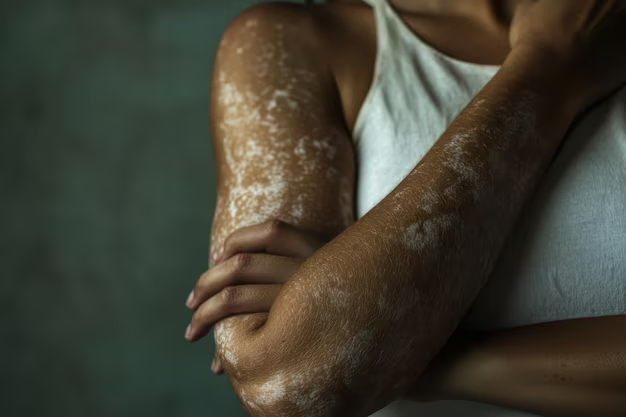Understanding Shingles: Contagious or Not?
You might have heard of the term shingles in casual conversation or perhaps while watching a medical drama. It's often mentioned with a sense of urgency and confusion, leading many to wonder, "Is shingles contagious?" Let's dive into the details to better understand shingles and unravel the truth behind its contagious nature.
What Is Shingles?
Shingles, or herpes zoster, is a viral infection characterized by a painful rash often accompanied by blisters. The virus responsible for shingles is the varicella-zoster virus (VZV), which is also responsible for causing chickenpox. After a person recovers from chickenpox, the virus doesn't simply disappear. Instead, it lies dormant in the body's nerve tissues, sometimes for decades, until it reactivates as shingles.
Key Symptoms of Shingles
- Rash and Blisters: Typically appears on one side of the body, such as the torso or face.
- Pain: Pain often precedes the appearance of the rash and can become severe.
- Itching or Tingling: These sensations may occur before the rash starts.
- Fever, Headache, and Fatigue: Common accompanying symptoms that can make the experience even more challenging.
Is Shingles Contagious?
The short answer is yes and no. While shingles itself is not contagious, the virus can spread to someone who hasn't had chickenpox or hasn't been vaccinated against it. If such a person comes into contact with the fluid from a shingles rash's blisters, they can develop chickenpox, not shingles. Here are the conditions under which shingles can be spread:
- Contact with Blister Fluid: Direct exposure is a major factor for transmission.
- Non-Immune Individuals: People never exposed to chickenpox or unvaccinated individuals are at risk of getting chickenpox.
It's important to note that once the shingles blisters crust over, the risk of spreading the virus drops significantly.
Who Is at Risk?
While anyone who has had chickenpox can develop shingles, certain factors increase the risk:
- Age: People over 50 are more frequently affected.
- Weakened Immune System: Conditions like HIV/AIDS or treatments like chemotherapy can heighten risk.
- Stress and Trauma: Both can trigger the reactivation of the dormant virus.
Prevention: Shingles Vaccine
A shingles vaccine is available and is a key way to reduce the risk of developing this painful condition. Here are some essential things to know about the vaccine:
- Eligibility: Recommended for adults over 50, regardless of whether they recall having chickenpox.
- Types of Vaccines: There have been different versions over the years; currently, Shingrix is preferred due to its high efficacy.
- Effectiveness: The vaccine can significantly reduce the risk of shingles and postherpetic neuralgia, a common shingles complication.
Living with Shingles
For those diagnosed with shingles, the experience can be painful and debilitating. Here are practical steps for management:
- Pain Management: Over-the-counter pain relief can help, but severe cases may require prescription medication.
- Antiviral Medications: These can help shorten the duration and severity when taken promptly.
- Self-Care: Ensure rest, maintain good hygiene, and avoid scratching to minimize discomfort and prevent spreading.
Emotional and Psychological Impact
Dealing with shingles isn't just about managing physical symptoms; it can also take a toll on mental health. The severe pain and discomfort can lead to issues like anxiety and depression. Staying connected with healthcare providers and reaching out for psychological support is crucial.
Complications of Shingles
While many recover from shingles without complications, some may face challenges such as:
- Postherpetic Neuralgia (PHN): Long-term nerve pain that can persist even after the rash clears.
- Vision Problems: If shingles affect the eyes, it can lead to serious issues, including blindness.
- Skin Infections: Secondary bacterial infections can occur if the blisters are not cared for properly.
Who Should Be Cautious?
Some individuals should be vigilant around someone with shingles, including:
- Pregnant Women: Especially if they haven't had chickenpox or are unvaccinated.
- Infants: Babies may be at risk if exposed to the active virus.
- Immunocompromised Individuals: They should avoid exposure to reduce the risk of serious complications.
Societal Myths and Misconceptions
Despite being a reactivation of the chickenpox virus, shingles is often surrounded by myths:
- "You can catch shingles from someone with shingles." - False. Direct transmission of shingles from person to person is not possible.
- "If you had chickenpox, you're immune to shingles." - Not true, as the virus can reactivate even after many years.
- "Shingles is only an old person’s disease." - While more common in older adults, younger people can also experience it.
Understanding these misconceptions can help reduce fear and promote informed discussions about the condition.
Practical Tips for Reducing Risk
For those wanting to minimize risk or manage shingles better, consider these practical points:
- Vaccination: Getting vaccinated is the most effective preventive measure.
- Healthy Lifestyle: A balanced diet, regular exercise, and stress management can support a robust immune system.
- Avoiding Contact with Blisters: Caregivers or family members should use precautions like gloves if helping someone with shingles.
- Hygiene Practices: Proper wound care and frequent handwashing can reduce the spread of bacteria and viruses.
Taking Action: Empower Yourself with Knowledge
Having a clear understanding of shingles, its transmission, and its management empowers you to make informed decisions. Whether through vaccination, hygiene practices, or understanding the real risks of contagion, being educated about shingles equips you to protect yourself and others.
Key Takeaways on Shingles 🛡️
- Shingles is caused by the same virus as chickenpox but affects individuals differently.
- It is contagious indirectly: Through exposure to blister fluid, leading to chickenpox in those not immune.
- Vaccination is crucial: Protects against both shingles and its severe complications.
- Be informed: Understand symptoms and treatments to manage and reduce risk.
- Combat myths: Accurate knowledge helps in handling shingles responsibly.
By integrating these insights into your understanding, you'll be better positioned to navigate conversations and situations involving shingles with confidence and clarity.

